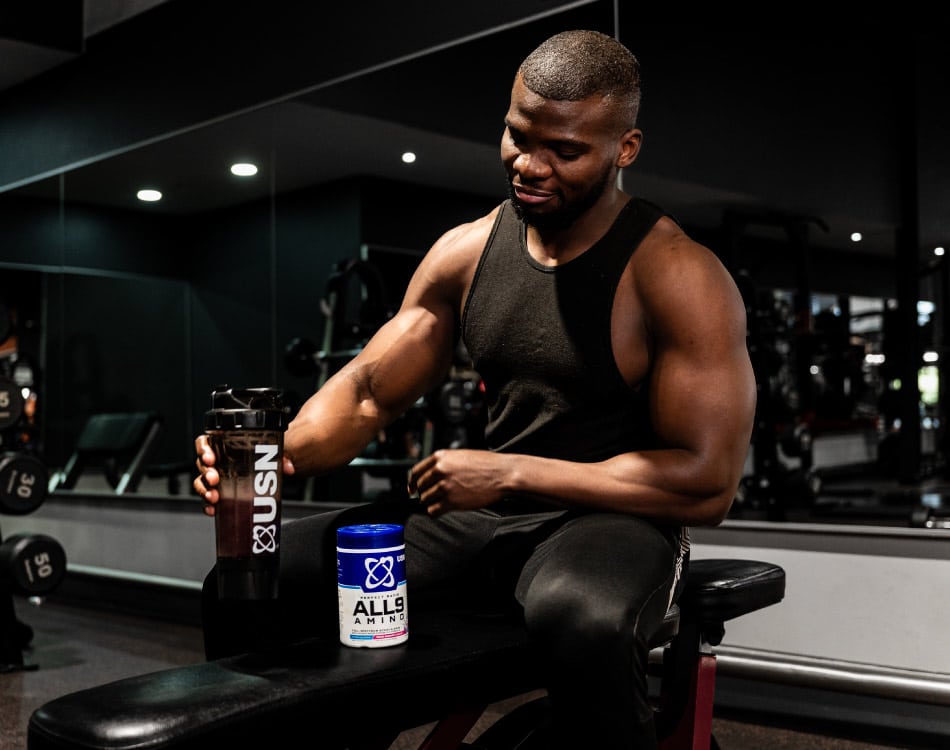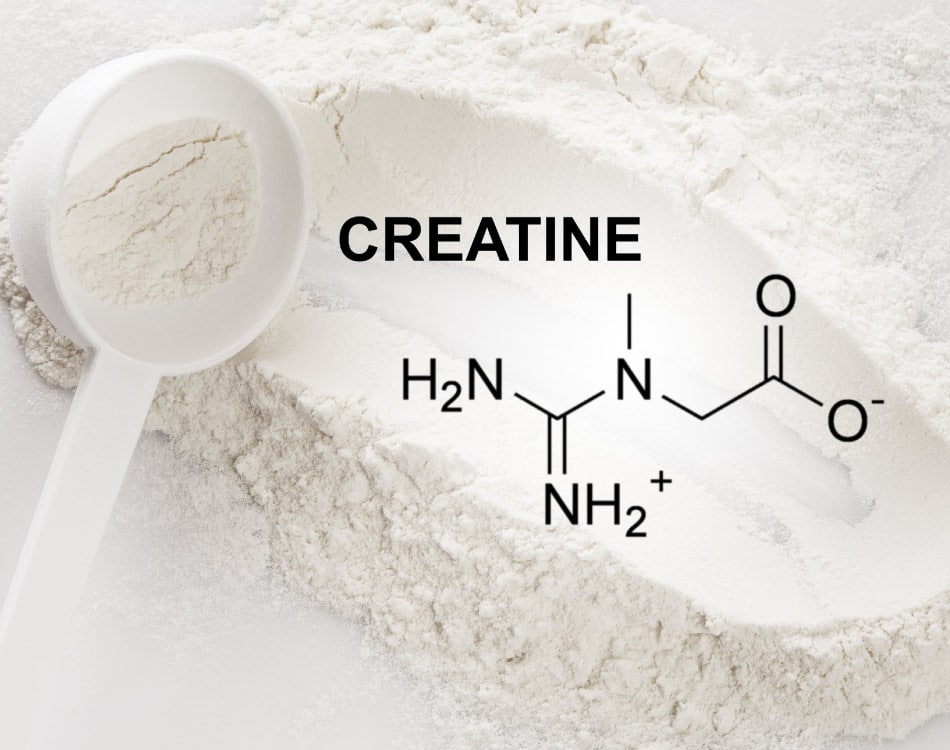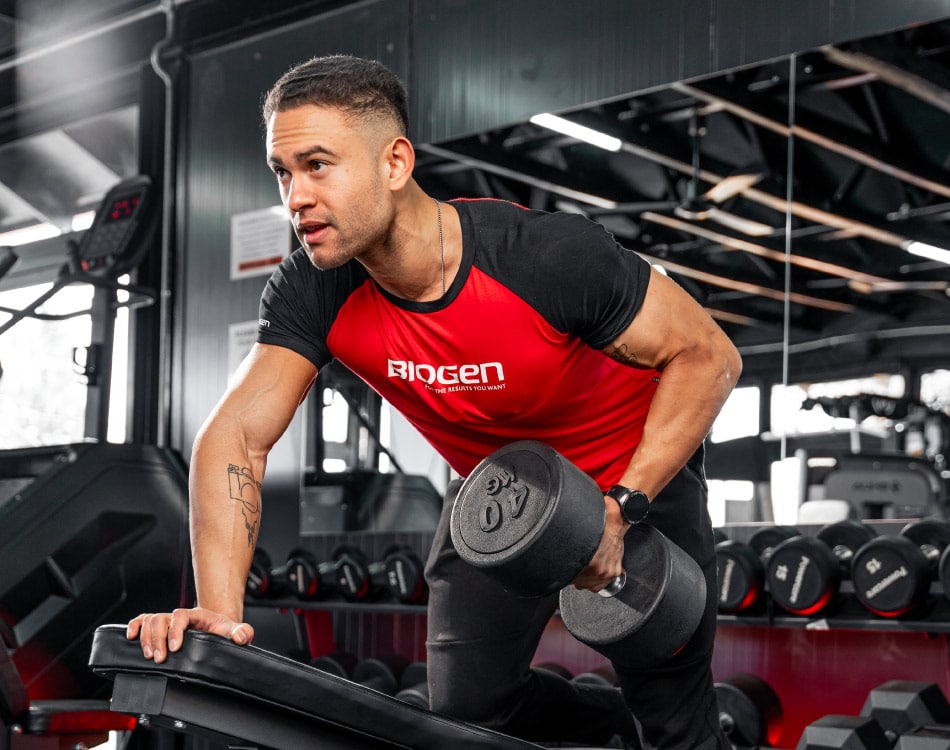Anyone who is serious about adding lean muscle to their physique uses well-formulated, quality supplements.
When used strategically as part of a balanced nutrition plan, the right combination of supplements helps to repair muscle after training, aid recovery from intense exercise, and help to promote the optimal environment for lean muscle growth.
For the ideal mix of improved performance, muscle gain and optimal recovery, consider adding these beneficial products to your supplement cupboard.
1. Whey protein
Whey protein has been the cornerstone of muscle gain for years because it has a high biological value (BV). This means it is rapidly digested and absorbed by the body, ensuring it can get to work sooner to repair and rebuild muscle tissue after exercise.
Whey also contains numerous beneficial compounds that include growth factors and a beneficial dose of Branched Chain Amino Acids (BCAA).
READ MORE: Whey your options: Your guide to buying the best whey for your goals
2. Pre-workout supplements
Pre-workout products are formulated to boost both mind and muscles with a surge of energy and beneficial nutrients.
These products usually contain stimulants but are formulated to avoid the ‘crash’. Effective pre-workout supplements also contain Nitric Oxide (NO) boosters, which dilate blood vessels to increase blood flow to working muscles. This ensures more vital nutrients such as amino acids, glucose, fats, fluid, electrolytes and oxygen can reach muscles during training.
READ MORE: The low-down on pre-workouts: Drink up, power up & demolish that session
This combination improves physical performance during training, which helps to build more lean muscle, while the amino acids help to limit muscle damage and kickstart the recovery process.
3. Creatine
Creatine’s primary role is energy production in the mitochondria – the power-generating structures in our muscle cells.
A supplement can help to top up our creatine reserves in muscle cells, which are used to power the short duration, high-intensity muscle contractions associated with weight lifting.
And with more creatine stored in our cells, we can maintain the intensity of short-duration muscle contractions for longer. This increases endurance and generates more forceful contractions, which helps you to lift more and produce more lean muscle in the process.
READ MORE: Is creatine the ultimate performance-enhancer?
4. Branched-Chain Amino Acids
Branched-chain amino acids (BCAAs), which include isoleucine, leucine and valine, are important to build, maintain and repair muscle tissue. Supplements help to increase BCAA levels beyond diet-derived levels because our body is unable to synthesise them.
BCAAs are vital substrates for other amino acids, which are released in large quantities during intense exercise, and they can be used directly for fuel by muscles, which reduces the amount of muscle tissue our body might metabolise (break down) for energy during training.
READ MORE: What’s so essential about Essential Amino Acids?
Research indicates that BCAAs taken before intense training can spare muscle during exercise, which can enhance performance and BCAAs also restrict cortisol release during exercise and may help ease delayed-onset muscle soreness after weight training.
5. ZMA
Zinc monomethionine aspartate (ZMA) is traditionally classified as a testosterone-booster. It is a scientifically-designed and tested zinc and magnesium mineral support formula that helps the body to optimise natural anabolic (muscle-building) hormone production.
As such, it will not boost testosterone levels beyond normal, natural limits. Instead, it will help restore anabolic hormones to optimal levels, which helps to support lean muscle development.
6. Casein protein
Casein is the other milk-derived protein. It is absorbed more slowly than whey as it tends to clump in the digestive tract, which makes it a popular product for use at night when a prolonged release of amino acids is beneficial to maintain muscle-building processes during sleep for as long as possible.
A popular form of this supplement is micellar casein, which has the slowest rate of digestion and assimilation of supplemental protein sources.


















Leave A Comment